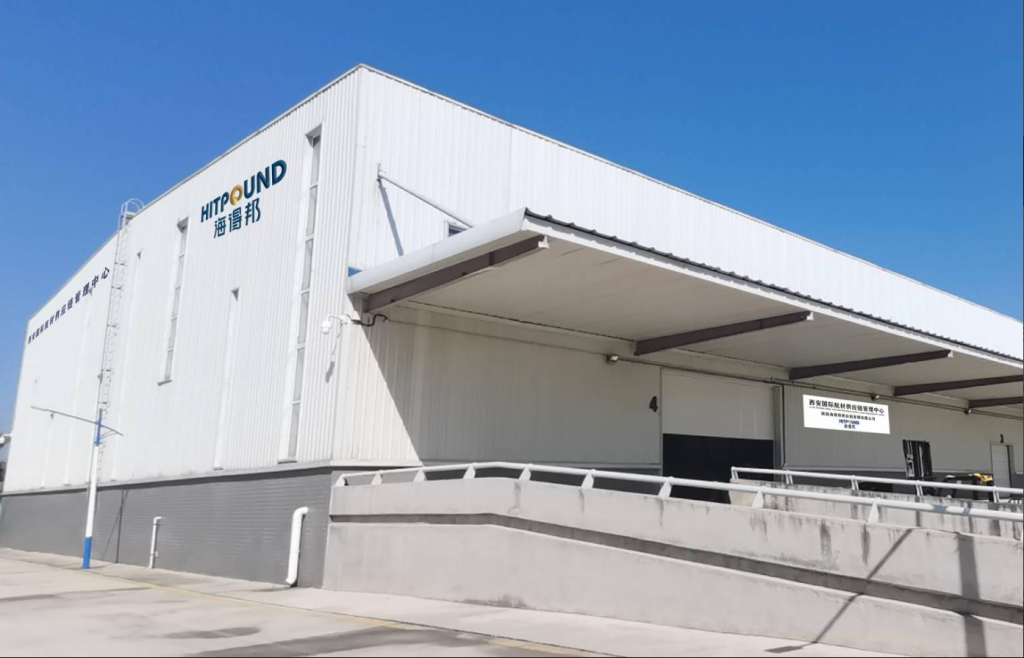Technology shapes paradigm shift
Digital Transformation
Automation and Artificial Intelligence
Sustainable Development
Omnichannel integration

With the development of Internet technology and big data, the digital transformation of the logistics industry has become the key to improving operational efficiency and customer satisfaction. Digitization not only means electronic management, but also means integrating various aspects of business processes, information flow, and capital flow into an intelligent ecosystem through the deep application of technology.
Logistics companies are establishing intelligent platforms to monitor and manage the entire process of goods transportation in real-time. With the help of Internet of Things (IoT) technology, logistics companies can track the real-time location, transportation status, and other key data of goods. This digital platform not only enhances the transparency of goods transportation, but also optimizes the decision-making process, enabling logistics companies to quickly respond to various challenges in a complex and ever-changing market environment.
For example, many logistics companies have introduced cloud based warehouse management systems (WMS) to make warehouse operations more refined and real-time. Through digital platforms, the storage, outbound, and distribution of goods can be optimized, reducing manual intervention, lowering error rates, and improving transportation efficiency and customer service quality.

In addition to digital platforms, the application of automation technology and artificial intelligence (AI) is also an important driving force for the paradigm shift in the logistics industry. Technologies such as unmanned warehouses, robot delivery, and automated sorting systems are becoming important assets for modern logistics enterprises.
Automated Warehouse: Improving Work Efficiency
In many logistics companies, automated warehouses have become an important component. By using automated sorting systems and robotic equipment, enterprises can significantly improve the efficiency of warehouse management. These robots are capable of 24-hour uninterrupted cargo handling and sorting, reducing manual operations and saving labor costs. Artificial intelligence analyzes a large amount of operational data to further optimize inventory management and order processing, improving the accuracy and efficiency of logistics and distribution.
Unmanned delivery: changing traditional delivery methods
With the continuous development of autonomous driving technology, the logistics industry is gradually achieving the goal of unmanned delivery. Unmanned delivery vehicles, such as autonomous trucks and delivery robots, are helping logistics companies reduce their reliance on manual delivery and improve delivery efficiency. These autonomous driving technologies can reduce the risk of traffic accidents and lower labor costs. With the assistance of AI technology, logistics companies can dynamically adjust their delivery routes based on traffic flow, weather conditions, and road conditions, achieving intelligent delivery management.
AI prediction and big data analysis: achieving precise scheduling
Another important application of artificial intelligence is precise prediction. Logistics companies can use big data analysis technology to comprehensively analyze market demand, transportation conditions, and warehousing conditions, predict future logistics needs, and achieve more efficient resource scheduling. AI can predict the transportation demand of goods based on historical data, help enterprises plan transportation plans in advance, avoid empty driving, and improve vehicle utilization.

3、 Sustainable Development: Application of Green Technologies
With the increasing awareness of environmental protection, green logistics has become an important direction for enterprise development. Technology can not only improve logistics efficiency, but also help companies contribute to environmental protection.
New energy fleet: reducing carbon emissions
Logistics companies are accelerating the use of electric logistics vehicles to reduce the environmental pollution caused by traditional fuel vehicles. Electric logistics vehicles not only reduce carbon emissions, but also decrease energy consumption and improve transportation efficiency. Through intelligent scheduling systems, new energy vehicles can achieve energy efficiency and promote the development of green logistics during transportation.
Intelligent path optimization: reducing energy consumption
Based on big data and AI technology, logistics companies can dynamically optimize transportation routes with the support of real-time traffic information. By reducing unnecessary traffic congestion and empty driving, lowering fuel consumption, and reducing carbon dioxide emissions, energy conservation and emission reduction can be achieved.
4、 Omnichannel integration: enhancing customer experience
The application of technology also helps logistics companies further enhance customer experience. With the rapid development of the e-commerce industry, customers’ demands for logistics services are becoming increasingly diversified, from instant delivery to precise tracking. Consumers hope to be able to understand their order status at any time, and even hope to receive goods in the shortest possible time.
Through omnichannel integration, logistics companies can break down information barriers and achieve seamless integration of online and offline business. Whether it’s B2B or B2C, logistics companies can provide customers with faster, more transparent, and customized logistics solutions. Meanwhile, with the help of big data analysis, enterprises can accurately grasp customer needs, provide personalized delivery services, and further enhance customer satisfaction.
Conclusion: Technology driven, the future of the logistics industry
With the continuous advancement of technology, the logistics industry is undergoing an unprecedented paradigm shift. The application of digitalization, automation, artificial intelligence, and green technology has not only changed the traditional business operation mode of logistics companies, but also injected unlimited vitality into the future development of the industry. If logistics companies can follow this trend and fully utilize technology to promote innovation, they can not only occupy a leading position in market competition, but also bring more efficient, green, and intelligent logistics services to society.
In the future, technology will continue to lead the transformation of the logistics industry, driving the entire industry towards a more intelligent, sustainable, and efficient direction.

发表评论